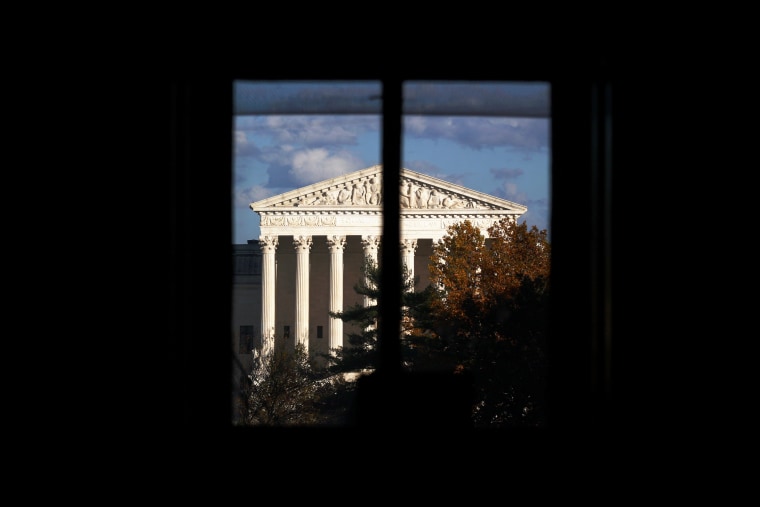The Supreme Court ruled Monday that two former students at a public college in Georgia can keep their lawsuit going against a campus speech policy, even though the policy was dropped and the students are long gone.
By a vote of 8-1, the court said that because the students sought nominal money damages, the case is still alive. In his lone dissent, Chief Justice John Roberts said the ruling will keep the courts open "to any plaintiff who asks for a dollar," even if a ruling comes well past the end of the dispute that gave rise to a lawsuit.
Roberts said federal courts must hear only active controversies — as opposed to the advisory opinions allowed in some states — and seeking nominal damages isn’t enough to deem this case so given that the policy is defunct and the plaintiffs are no longer students.
His colleagues on the court "see no problem with turning judges into advice columnists," he wrote.
The case began in 2016 when Chike Uzuegbunam, then a student at Georgia Gwinnett College, was told to stop passing out religious materials and speaking about his Christian faith because he was not standing in either of the two "free speech expression areas" on campus.
When he resumed his speaking, with a permit, in one of the zones, he was told to stop again because other students had complained. So he and another student sued, arguing that the policies violated their right of free speech. In response, the school abandoned the policy and asked the courts to dismiss the lawsuit.
The Supreme Court said Monday that even though the policy no longer exists, the lawsuit remains alive because students can still seek nominal damages. It sent the case back to the lower courts for further proceedings.
Kristen Waggoner of the conservative legal group Alliance Defending Freedom represented the students and praised Monday’s ruling.
“The Supreme Court has rightly affirmed that government officials should be held accountable for the injuries they cause,” she said. “When such officials engage in misconduct but face no consequences, it leaves victims without recourse, undermines the nation’s commitment to protecting constitutional rights, and emboldens the government to engage in future violations.”
When he was attorney general, Jeff Sessions ordered the Justice Department to step into the case on the side of the students. But with the policy gone, the case is likely to end without any definitive ruling on the constitutionality of the speech restriction.

